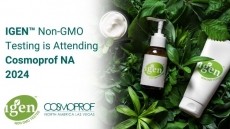Study reevaluates topical body formulations: New insights for cosmetics and PBC manufacturers

A new study published in Cosmetics revisits previous research comparing the effectiveness of two competing topical body formulations, SkinMedica's Firm and Tone Body Lotion (FTB) and Alastin's TransFORM Body Treatment. The study, titled "A Re-Examination of a Previous Study Relating to Topical Body Formulations: Validating Gene Expression Transcription at Multiple Time Points, and Protein Expression and Translation in an Ex Vivo Model," aims to provide a more comprehensive understanding of how these products influence gene expression, protein translation, and skin health over time.
Conducted on an ex vivo human skin model exposed to photodamage, this study offered insights that may have significant implications for cosmetics and personal care manufacturers. The findings challenge earlier conclusions, offering a nuanced perspective on the formulation strategies of skin care products, particularly those designed for body treatment and skin rejuvenation.
Key findings: A shift in perspective
The study's primary objective was to validate gene and protein expression at various time points to see how the two products influence the skin’s molecular health. According to the researchers, “Gene expression transcription, along with protein expression and translation, were measured at multiple time points to better understand how these formulations affect skin repair and rejuvenation mechanisms.”
One of the most notable findings was the stark difference in the performance of the two products over time. Previous studies indicated that SkinMedica’s FTB formulation had strong early results, particularly in stimulating collagen and elastin production—two key components for maintaining skin elasticity and youthfulness.
However, the current study found that Alastin’s TransFORM formulation delivered more sustainable and long-lasting benefits.
The researchers noted, “TransFORM exhibited superior performance in maintaining collagen production and promoting healthy elastin fiber formation over an extended period, compared to SkinMedica’s FTB.” Elastin fibers are essential for skin elasticity, and the degradation of elastin is one of the major contributors to skin aging.
TransFORM’s ability to maintain elastin levels suggests it may offer a longer-lasting solution for individuals seeking to reduce the visible signs of aging.
Implications for manufacturers and suppliers
For manufacturers and suppliers in the cosmetics and personal care industry, these findings present both challenges and opportunities. Product formulations often emphasize immediate effects to attract consumers, particularly in competitive categories like anti-aging and body treatment.
However, the study’s data suggests that focusing on long-term benefits, such as sustained elastin and collagen production, may be more effective in the long run. “Cosmetic manufacturers should take note of this research, as it underscores the importance of formulating products that not only deliver immediate visible improvements but also support long-term skin health,” the researchers concluded.
The research highlighted the evolving understanding of how skin care products work at the molecular level. Manufacturers might consider reformulating existing products or introducing new ones that emphasize sustained results over quick fixes.
For suppliers, the findings offer a clearer direction for sourcing active ingredients that can support these long-term outcomes, such as peptides or other compounds known to stimulate collagen and elastin production.
Opportunities for innovation in the personal care sector
The study opens the door for further innovation in product development, particularly in the growing anti-aging and body care markets. As consumers become increasingly savvy and demand more from their skin care products, there is a significant opportunity for brands that can demonstrate both immediate and lasting benefits.
The ex vivo model used in the study provided a more accurate depiction of how these formulations interact with human skin over time. “By using an ex vivo photodamaged human skin model, we were able to simulate real-world conditions and more accurately measure the effects of the formulations,” the study explained. This method allowed for the assessment of the products at multiple intervals, offering a clearer picture of their long-term effectiveness.
Given the study’s findings, manufacturers may also want to consider investing in clinical trials that focus on long-term outcomes rather than just immediate results. While immediate effects are still important for consumer satisfaction, the ability to prove sustained benefits could set a product apart in an increasingly crowded market.
By demonstrating the superior long-term benefits of Alastin’s TransFORM Body Treatment over SkinMedica’s FTB, the research suggested that product formulations should prioritize sustained molecular benefits, particularly in collagen and elastin production, to meet the evolving demands of consumers. For manufacturers, this shift could mean exploring new ingredients or reformulating existing products to better align with these findings. Meanwhile, suppliers can focus on providing raw materials that support long-term skin health, positioning themselves as key partners in the next wave of skin care innovation.
Source: Cosmetics
2024, 11, 159. https://doi.org/10.3390/cosmetics11050159
"A Re-Examination of a Previous Study Relating to Topical Body Formulations: Validating Gene Expression Transcription at Multiple Time Points, and Protein Expression and Translation in an Ex Vivo Model"
Authors: Widgerow, A.D. et al.

















